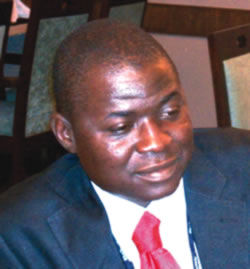Financial resolutions everyone should make
Here are some that you should consider relating to your finances:
Save more
It’s easy to tell yourself that you’re going to save more money, but do you ever follow through with those promises? You might start saving for a month before deciding that you’d rather spend that money on other “necessities”. However, saving can be fairly easy. Even someone living on a strict budget can find ways to cut costs and save a little money. You can start small, shoving a small amount away at the end of each month. Some people like to take all the small bills out of their wallet at the end of the week. If you don’t carry cash, have part of your paycheck automatically deposited to a savings account.
Spend less
Spending less money is also easier said than done. But a lot of us have the unfortunate tendency of overspending on certain products. Sometimes this occurs because there’s a minimum balance requirement, which often happens at online retailers and tricks people into spending more money. You’ll need to start taking stock of how much money you’re spending and where you can cut costs.
Pay down debt
Paying down debt is difficult, especially if you’ve accumulated so much debt that it seems as if you’ll never pay it off in your lifetime. However, you should make a resolution to attempt to get a handle on your debt. Once you know how much you owe and each payment plan, you can start to create your own short and long term goals and work toward paying it down. This might be setting aside extra money each week for a monthly payment or taking on extra jobs to make large payments on the interest or principal balances.
Have an emergency fund
Emergency funds are important to have in case anything unexpected happens such as a medical emergency, a natural disaster, or the loss of a job. While creating an emergency fund is difficult if you’re living paycheck to paycheck, you can always try and put aside a little extra money. When you receive your tax returns, you can set aside a portion for your emergency fund, for instance. In an ideal world, your emergency fund should be able to cover your expenses for six months. If that seems unlikely for your financial budget, you should plan to have one that can at least cover your expenses for one month.
Track your finances
When was the last time you looked at a bank statement? How often do you swipe your debit or credit card without thinking twice? You should make a habit of tracking your financial statements for a few reasons. For one, it might help you address unneeded spending. You might not realise how often you order takeout until you see it listed on your bank statement. Additionally, looking at your bank statements can help you address any fraud claims. There are plenty of people who never really know how much money they have in their bank account and would never know if someone charged something to their account.
Start a retirement fund
Many people don’t take advantage of starting a retirement fund when they first enter the workforce. Sometimes it’s because they believe they don’t have to worry about a retirement fund until later in life and sometimes it’s because they think they can’t part with the money. However, one of your primary financial goals should be creating a retirement fund. What would happen if you never saved money for retirement? You want to be able to have all your expenses covered in your old age, right? Start putting money into a retirement account as soon as you can.
Source: www.savingadvice.com
Culled from Punch


Comments
Post a Comment